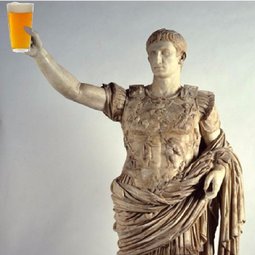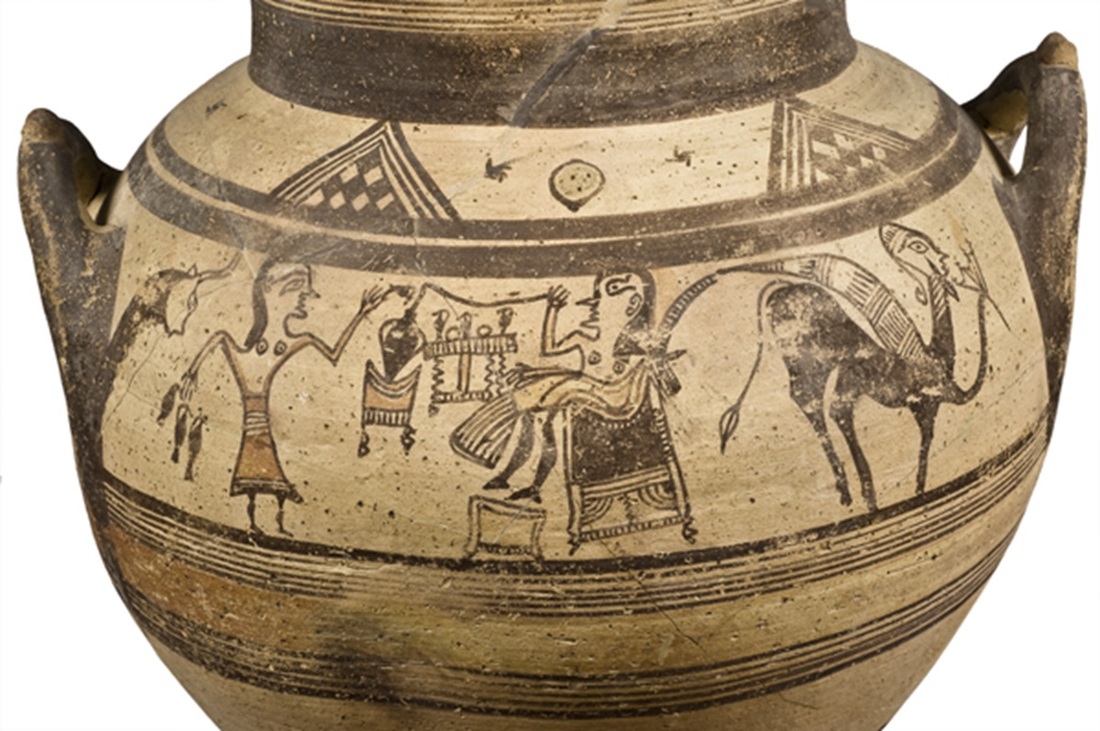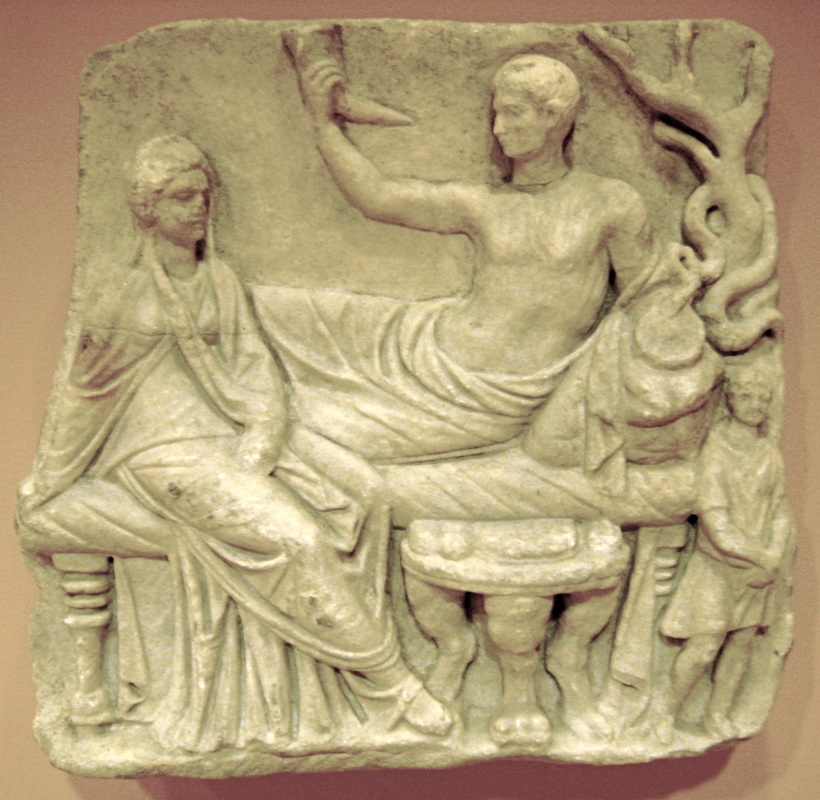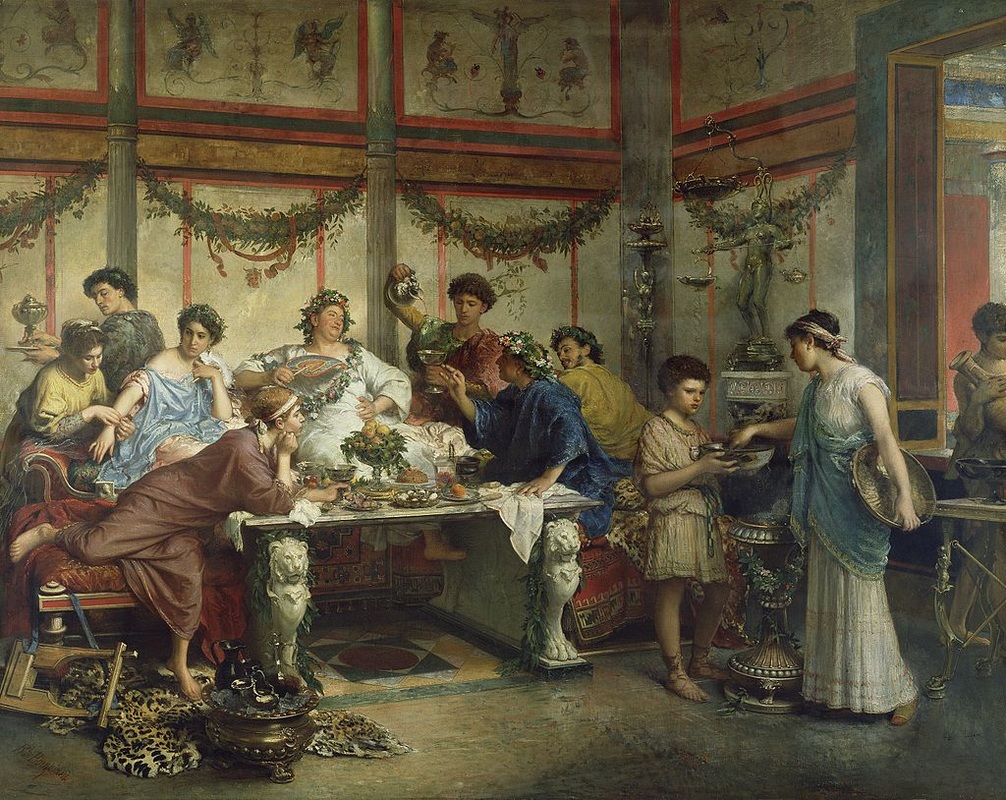An interview with Kimberley & KyleClassical antiquity covers the period from the publication of Homer to the fall of the Roman empire, roughly 800 BC to 500 AD. As most are aware, the Greeks and Romans were adamant wine drinkers. Thus, when the Romans decided to write about their barbaric neighbors, they normally were not kind in their judgments of the barbarian's habit for beer drinking. So literary evidence from the era stems from those who normally didn't consume it, creating an interesting dynamic of 'Us vs them'. In researching the history of beer, it is inevitable to come across such texts. However, most articles on the matter omit the translations, leaving the reader to trust in the researcher's interpretations. That is why the Brewing Classical Styles (BCS) blog is awesome. They’re bringing the primary literature to light, thus making the sources available to all. Plus, they brew some interesting styles to boot, like an all lentil beer. Kyle is based in Illinois, USA. He started the blog, is the main author and the “brains” of the operation. Kimberley is based near Amsterdam, Netherlands. She does the social media and is now a regular contributor because all the cool beer festivals and Classically-themed beers in the Low Countries are too good for BCS to miss! Via the power of the internet, I had a brief online conversation to get to know Kyle and Kimberley a little bit better: Have any favorite beer at the moment?Kyle: Anything without lentils. Actually, I typically don’t have a “favorite beer,” because I rarely more than one or two of the same beer (there are too many great ones out there!). I recently had Cigar City’s Marshal Zhukov and loved it. Kimberley: My favorite is EigthFive-0 American Pale Ale by Proof Brewing Co. Kyle used to live in Tallahassee so we had easy access, but now sadly no more. He promised to save me one though! Beer style?Kyle: Although I love heavy stouts and Belgian quads, I find myself gravitating towards lower ABV beers (you can drink more!) like English ales, pale ales, and sours. Kimberley: (India) Pale Ale and, dare I say it, Pumpkin beers. I don’t like some IPAs, particularly not fond of the dank flavor that is all the rage these days and overly bitter brews so my go to is to first get the Pale Ales on draft. Definitely a fan of the citrus and tropical flavors that some IPAs have and I have to admit that I am one of those girls who loves pumpkin-spice-anything, so that includes beer. Actually, Kyle is brewing me some pumpkin beers as we speak! What got you interested in beer history/Greco-Roman history?  Kyle: I’ve always loved ancient Greece and Rome and I wanted to be an archaeologist since my childhood. Beer is a relatively new passion of mine that has only increased since I started homebrewing. Despite the relative popularity of beer-history, there are not many resources available to the general public on ancient Greek and Roman brews. Most publications are general syntheses and omit primary sources. I became curious about the literary evidence and decided to start the blog. My main area of research is not ancient beer, so the blog is as much a document of my own discovery of the literature. Foreshadowing my foray into ancient beers: in college – many years ago – I took an “Ancient Technology” course. We had the option to recreate any ancient technology for the class’s final project. A buddy and I decided to brew ancient beer. We read the “Hymn to Ninkasi” and many ancient Egyptian and Sumerian references before trying our hand at brewing. The result was absolutely revolting. Now that I know how to brew, I realize how many absurd mistakes were made for that project. It never even entered my mind that one could make real beer in his/her house until many years later. Kimberley: Well, for me it was archaeology before anything really. During my studies, Classical Greece and Rome were part of the course work, but I chose to specialize in Aegean prehistory instead. So for me personally, Classical Greece and Rome used to be what I had to wade through to get to the good parts! Kyle is the one that got me into craft beers and recently, the beer history of the Greco-Roman world! Through his blog I am rediscovering all these places and times that I had to learn about during my undergrad and it turns out, the Classical world is far more interesting than I used to think! Nothing beats the Bronze Age though ;-) What was your dissertation about? Kyle: Identity and architecture in the Greek Bronze Age. Although the topic is unrelated to beer, beer was necessary for its completion. Kimberley: I am still writing up my PhD dissertation at the moment and it is about the question how connections between Greece and Italy could continue after a big crisis hit the Aegean and eastern Mediterranean around 1200 BC. To this purpose, I mainly study bronze objects and ceramics that indicate these connections in Greece, but for comparative purposes I also look at Greek ceramics in southern Italy. So no beer (yet)! Been on any digs recently?  Kyle: I used to dig/survey very frequently (3-4 projects/summer). However, I have begun to focus more on studying material that was already excavated. Kimberley: Sadly no. The dissertation has kept me away from excavating lately. My last project was the Mitrou Archaeological Project, which was already in the post-excavation study season when I joined. It’s actually where Kyle and I met. What was beer's role (if any) within Greco-Roman society? Kyle: Beer had the stigma of being a “barbarian’s” drink or a drink that was popular on the fringes of the Roman empire. There are several great books about the social role of beer in ancient society. As a result, I try to avoid this avenue of study. In fact, the main purpose of the blog is to make the primary sources on which these studies are based accessible to the general public so that the reader can draw his/her own conclusions. Kimberley: Kyle is the expert here, because he’s the one that started researching beer in ancient Greece and Rome recently and founded the blog. The reason I joined initially was to help him out with social media. My role has since evolved to that of regular contributor, but so far I’ve been mainly doing reviews of modern, Classics-inspired beers rather than doing the in-depth research of beer in the ancient world. When I visit him in December, I may become more active on the research side because the plan is I will be helping him out with the experimental brewing project. Was it made at home, or only for barbarian-soldiers (as those stationed at Hadrian's Wall)?Kyle: It was certainly not a drink reserved for barbarian-soldiers. The true scale of production (especially outside of Britain) is hard to determine due to the lack of relevant sources and problems identifying brewing spaces in the archaeological record. Kimberley: Well, they have recently been finding these brew houses in the UK from Roman times in the south, far away from Hadrian’s wall. So far, the reports do not make a connection with Roman forts or soldiers; one site (Wood Burcote) appears to be on the road to a larger Roman town (Towcester) and there are some speculations about it being an inn or pub of some sorts, while the other (Boxford) appears to be located in the countryside, not too far away from a Roman villa. In these instances, it appears too early to tell whether you can really speak of a domestic mode of production, but the location alongside an important road to a larger town could perhaps hint at production that was not (only) geared towards supplying the soldiers in the north. Hopefully, more extensive reports on these sites will clarify the situation. Is the case study done by Dr. Lindy Crewe and Dr. Ian Hill ("Finding Beer in the Archaeological Record: A Case Study from Kissonerga-Skalia on Bronze Age Cyprus") Kyle: The 2013 article about this is very detailed and comprehensive. It is a fascinating read! However, I have not personally studied this material and, as a matter of course, I do not feel comfortable commenting on the interpretations. Kimberley: The article presents a compelling case but, as the authors themselves readily admit, it is based on circumstantial evidence that could also be explained in a different manner. I thoroughly enjoyed their interpretation of the plastic decoration on those Cypriot vases as representing the activities taking place in a brewery as a way to support their case for having excavated a drying kiln used for making beer. It certainly is an interesting hypothesis! I have read before that the Romans most likely improved the production models of beer, given their expertise with wine making. Is there any evidence for that (artefacts or otherwise)? Kyle: To my knowledge, there is no definitive evidence that proves this. I would be very interested to read any articles to the contrary. My primary research interest relates to different modes of production and the transfer of technological knowledge – a related area of study. Kimberley: That’s a very interesting idea that seems to counter the notion that beer was only reserved for barbarian soldiers. Whose research do you think doesn't get enough recognition? Kyle: This is a very difficult question. There are different types of “recognition” – especially between academia and the general public. Research that is very popular within the field may never make it to the popular media because it often is not “exciting” from the public’s perception. Alternatively, popular finds that appear on new sites may take years before full research and publications are prepared. Only then can academics understand the full significance and integrate into their own research. Kimberley: Kyle definitely has a point here. Hopefully, one day the blog can grow to become a medium that bridges the gap between what’s popular in the media and what’s popular in academia – at least as far as beer in the Greco-Roman world is concerned. Where do you see the research going in the next few years? Kyle: Beer is becoming a much more popular direction of study. Its importance in popular culture and the development of more advanced scientific techniques have helped to make beer history and beer archaeology to become almost “trendy.” I would not be surprised if there are more discoveries/identification of ancient breweries. Kimberley: It’s already happening! Two Roman breweries in one month, now we just need some Greek ones! Is there anything people should be more involved with / discussing at the moment? Kyle: The most important thing is public support of the Humanities. Go to lectures/public talks (the Archaeological Institute of America has public lecture series at regional chapters throughout the USA), enroll in courses at your local universities (or declare a major!), learn foreign and ancient languages, travel to museums and sites of archaeological importance, and keep trying to learn more. I guarantee you will find the relevance of Classics, a Classical education, and archaeology, regardless of your profession/hobby.
Kimberley: Amen to that.
0 Comments
Leave a Reply. |
Jordan RexBeer archaeologist Archives
November 2017
Categories
All
|




 RSS Feed
RSS Feed
